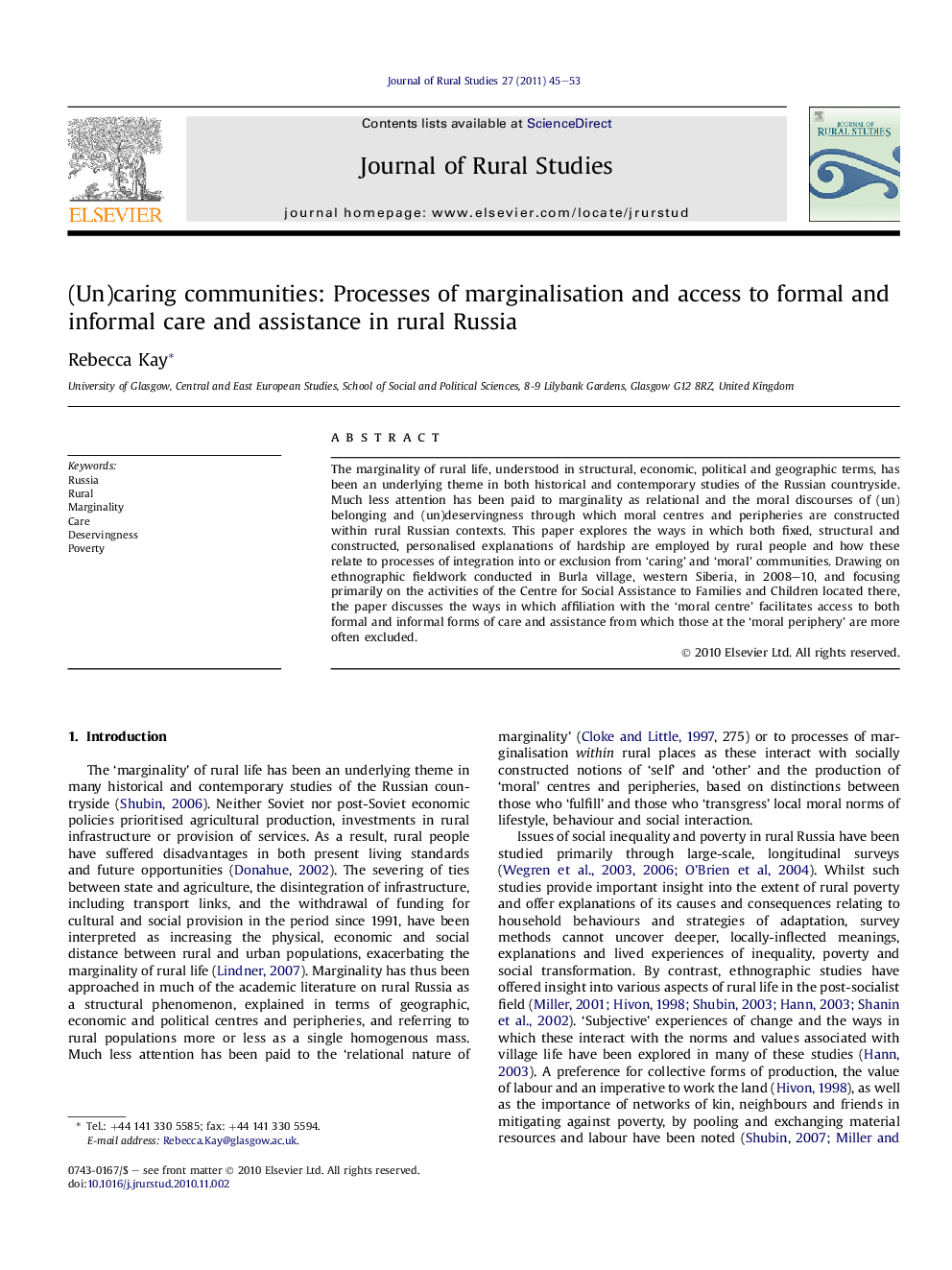| Article ID | Journal | Published Year | Pages | File Type |
|---|---|---|---|---|
| 92723 | Journal of Rural Studies | 2011 | 9 Pages |
The marginality of rural life, understood in structural, economic, political and geographic terms, has been an underlying theme in both historical and contemporary studies of the Russian countryside. Much less attention has been paid to marginality as relational and the moral discourses of (un)belonging and (un)deservingness through which moral centres and peripheries are constructed within rural Russian contexts. This paper explores the ways in which both fixed, structural and constructed, personalised explanations of hardship are employed by rural people and how these relate to processes of integration into or exclusion from ‘caring’ and ‘moral’ communities. Drawing on ethnographic fieldwork conducted in Burla village, western Siberia, in 2008–10, and focusing primarily on the activities of the Centre for Social Assistance to Families and Children located there, the paper discusses the ways in which affiliation with the ‘moral centre’ facilitates access to both formal and informal forms of care and assistance from which those at the ‘moral periphery’ are more often excluded.
